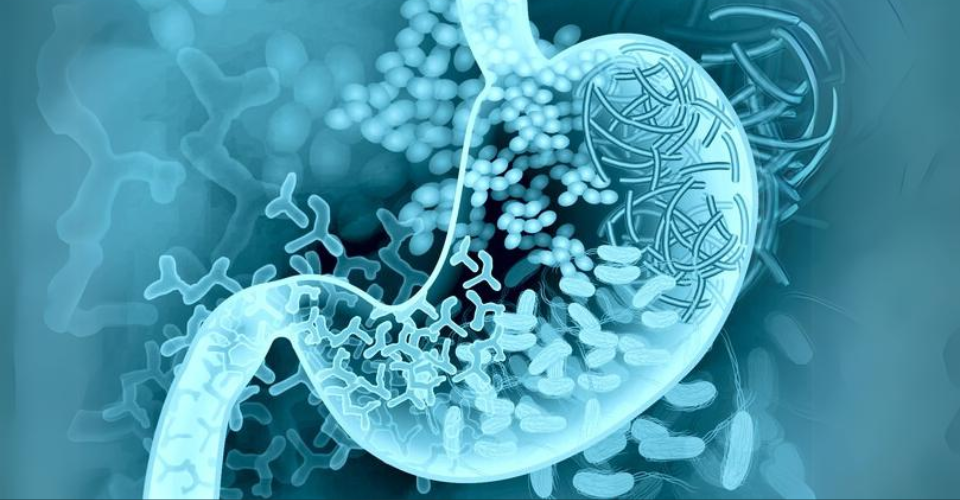A revolutionary gut microbiome, a short chain fatty acid, sodium valerate, created by the gut microorganisms may be just what scientists have been looking for to help reduce alcoholism. This discovery as discussed in Microbiome journal underscores the deep connection between the gut and the brain that can help fight pervasive alcohol intake.
Alcohol Use Disorder – A Grave Task
As a chronic condition of not regulating consumption of alcohol despite its harmful outcomes, Alcohol Use Disorder (AUD) affects millions globally leading to substantial health, social and economic burdens. It results in liver disease, cardiovascular problems, psychiatric diseases, increased risks of accidents and injuries among other conditions. Current therapies such as medications and behavioral treatments often do not yield satisfactory results prompting the need for new approaches.
The Gut-Brain Link
Recent studies have emphasized the significance of gut microbiota in various ailments including AUD. The gut microbiota is a complex microbial community residing in our digestive system contributing significantly to digestion immunity and overall wellbeing. Interestingly, these gut bacteria affect behavior via a communication network called “Gut-brain” axis connecting the digestive tract with central nervous system.
Research Focus: Sodium Valerate
Considering that alcohol damages useful bacteria and SCFAs in the gut microbiome; it was hypothesized that enhancing supplementation involving particular SCFAs could attenuate or reverse such effects against ethanol consumption as well as excessive drinking habits. Yanjiao Zhou and Jason Bubier led a research team which conducted an investigation using mouse model for binge drinking.
Methodology of the Study
In this study, male mice were given three different SCFAs—sodium valerate, sodium butyrate, and sodium acetate—to determine their impact on alcohol intake. Mice were housed under specified conditions while being treated with these SCFAs over ten days through drinking water. These mice went through “drinking in the dark” (DID) paradigm after this supplementation which imitates binge drinking by providing limited access to a 20% ethanol solution. Researchers recorded the volume of ethanol consumed, as well as took blood samples for determination of the concentration of blood ethanol.
Encouraging Sodium Valerate Findings
The results were quite impressive. Mice treated with sodium valerate drank 40% less alcohol and had 53% lower blood ethanol levels than control mice. This effect was specific for sodium valerate and was not observed with other SCFAs. Additionally, in an open-field activity test, sodium valerate reduced anxiety-like behaviors among mice indicating that the treated mice showed decreased anxiety.
Mechanisms Underlying the Effects of Sodium Valerate
The study found raised gamma-aminobutyric acid (GABA) concentrations in brain tissues, feces and plasma of these mice following sodium valerate treatment. GABA is a neurotransmitter implicated in anxiety disorders and alcohol usage disorder making it a possible player in how sodium valerate might influence behavior. Further molecular analyses showed significant changes in amygdala’s gene expression associated with neuroinflammation neurotransmission mitochondrial function and signaling pathways which are involved emotional regulation [17]. These findings suggest that numerous brain signaling pathways could be affected by this molecule collectively resulting into lower anxiety levels and reduced alcohol drinking.
Gut Microbiome Influence
Sodium valerate supplementation altered gut microbiota composition with increased abundance of specific bacterial genera which could have contributed to the behavioral/molecular effects observed thus solidifying the relationship between gut micobiome and alcohol consumption.
Professional Perspectives
Bubier noted that “The research expands our knowledge of how the gut microbiome and alcohol interact.” He said this because there is good information to suggest that binge drinking disrupts the microbiome with the aid of gut-brain axis thereby hastening addiction’s cycle. Thus, we are able to offer biological explanation and a possible treatment to mitigate extreme use of alcohol.
Future Directions
However the results from this research are encouraging, it should be understood that only male mice were used as subjects. It is necessary for further studies to find out whether these findings can apply to females and test sodium valerate’s impact on alcoholic animal models. Therefore, uncovering how sodium valerate works in relation to alcohol consumption as well as anxiety will be essential to coming up with targeted therapies.
Conclusion
Zhou said, “Our study has huge implications.” This is because we have given a holistic view why sodium valerate could possibly reduce high amounts of alcohol in the body by looking at changes in gene expressions plus neurotransmitter alterations. Such a finding could help develop new ways of treating those who suffer from continuous use of alcohol.
Suresh C. Bokolica, Jordan Russell, Yair Dorsett, Hunter A.Panierb, Vijender Singhc , Lauren Daddi (a), Hanshu Yuand & Liv R.Dedonf Zhongmao Liu (g) Yuqi Zhou (h), Zefang Min(a), Jessica R.Barson(a), Jonathan Covaultd Jason A. Bubiere Yanjiao Zhou(d).






Leave a Reply
You must be logged in to post a comment.